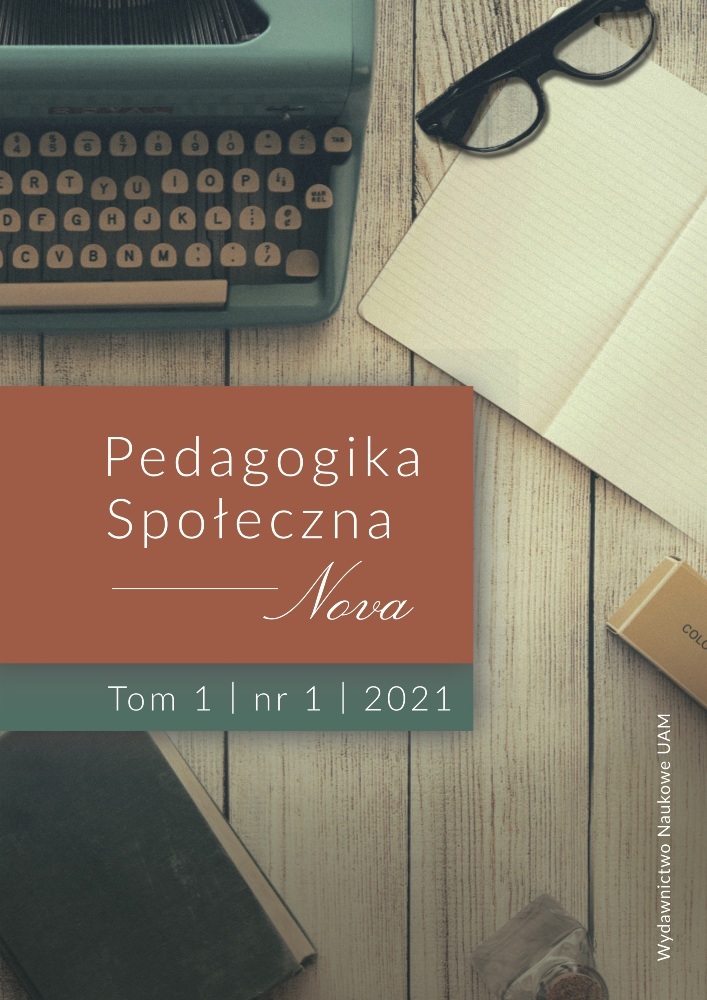Abstrakt
The article presents the results of a pedagogical study, recently conducted on a group of over 8 thou- sand adolescents on the self-assessment of attitudes towards learning. As technologies have shifted many points of focus in addressing learning as an essential aspect of the educational process, the author intended to analyze the representations of adolescents from the knowledge and information century, administering an online questionnaire consisting of different types of questions. The results revealed diverse and mature perceptions, problems of teacher-student, student-student relations, of the institutional process of organization / culture of learning, but also of its results, as perceived by the main actors of the educational act.
Bibliografia
Beard Al., Născuți pentru a învăța / Natural born learners, Bucureşti 2019.
Bocoș M.-D., Instruirea interactivă. Repere axiologice și metodologice / Interactive teaching: Axiologi- cal and methodological landmarks, Iași 2013.
Boza M., Atitudinile sociale și schimbarea / Social attitudes and the change, Iași 2010.
Cadrul de referință al Curriculumului Național / Reference framework of the National Curriculum, Chișinău 2017.
Callo T., Pedagogia practică a atitudinilor / Practical pedagogy of attitudes, Chișinău 2014.
Ciolan L., Învățarea integrată. Fundamente pentru un curriculum transdisciplinar / Integrated learning: Fundamentals for a transdisciplinary curriculum, Iași 2008.
Codul Educației al Republicii Moldova / Education Code of the Republic of Moldova, Chișinău 2014. Cristea S., Dicționar de termeni pedagogici / Dictionary of pedagogical terms, Bucureşti 1998.
Crișciuc V., Rezultatele evaluării PISA 2018: dimensiuni, conexiuni şi așteptări privind evaluările in- ternaționale și naționale ale elevilor / Results of the PISA 2018 assessment: dimensions, connec- tions and expectations regarding international and national student assessments, https://www. soros.md/files/publications /documents/ Crisciuc_compressed.pdf [access: 18.02.2021].
Education Council, Recommendation of the European Parliament and the Council of 18 December 2006 on key competences for lifelong learning, “Official Journal of the European Union”, Brussels 30.12.2006.
Goia D., Ghid al activităților pentru a învăța să înveți în școli / Activites guide for learning to learn in schools, Bucureşti 2019, http://euroguidance.ise.ro/wp-content/uploads/2019/01/ghid_a_inva-tasa_inveti.pdf [access: 10.02.2021].
Golu Fl., Forme și stiluri de învățare, [in:] Pânișoară G. (coord.), Psihologia învățării. Cum învață copiii și adulți / Learning psychology: How children and adults learn, Iași 2019.
Golu Fl., Manual de psihologia dezvoltării. O abordare psihodinamică / Psychology textbook: A psycho- dynamic approach, Iași 2015.
Goraș-Postică V. (coord.), O competență cheie: a învăța să înveți / A key skill: learning to learn, Chișinău 2010.
Goraș-Postică V. Învăţarea ca dimensiune de existenţă a unei organizaţii (studiu aplicativ) / Learning as a dimension of an organization’s existence (Applied study), “Didactiaca Pro...” 2002, no. 6 (16), pp. 8–16.
Pânișoară G. (coord.), Psihologia învățării. Cum învață copiii și adulți / Learning psychology. How children and adults learn, Iași 2019.
Pâslaru Vl., Introducere în teoria educației literar-artistice / Introduction to the theory of literary-artis- tic education, Bucureşti 2013.

